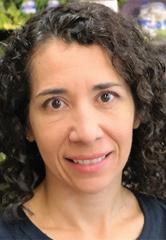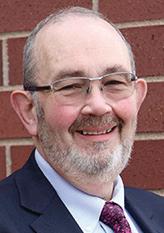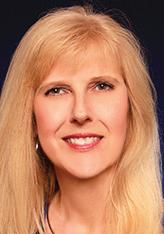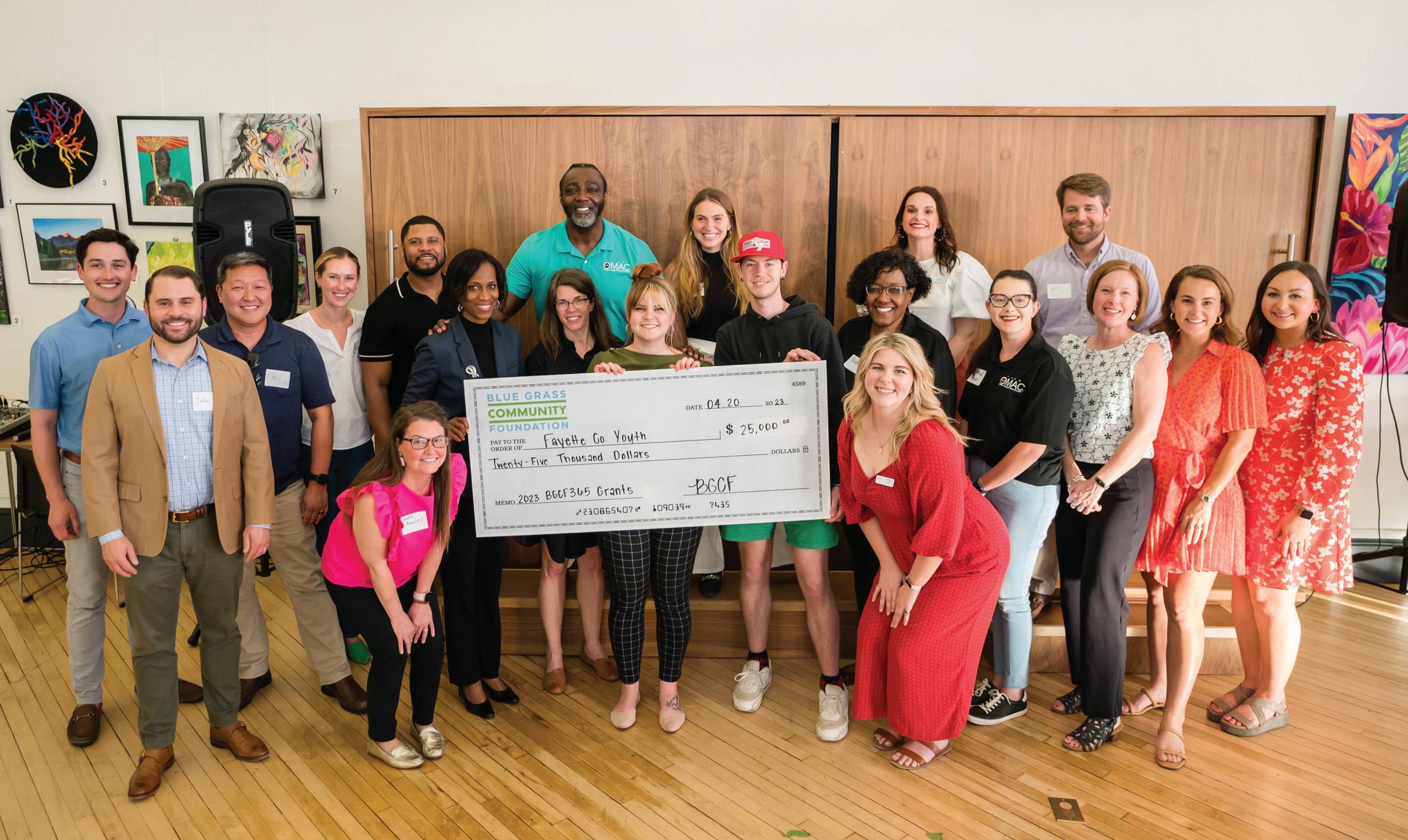















































EDDIE’S ROASTED CORN
















MAY 17-18, 2024
bbq • beer • bourbon • music & more moondance Amphitheatre
TICKETS HERE!

ENJOY BBQ FROM LOCAL PITMASTERS : KENTUCKY Q • MY HAMMY VICE • HOGTOWN BARBEQUE SOCIAL EATERY • D’VINE SWINE
LILLIE MAE’S BBQ • KENTUCKY STRONG BBQ • SHON’S BBQ • JASMINE RICE KOREAN BBQ SONNY’S BBQ • JESSE’S SLOOO GOOD BBQ • KIRK’S BLUE SMOKE BBQ

C&J BBQ • PIGGIN’ OUT & MORE ! PLUS, OTHER NOMS : INEBRIATED BAKER
GUS’S FRIED CHICKEN • OLD KENTUCKY KETTLE CORN • KONA ICE
• LITTLE DONUT TRAILER • SAV’S GOURMET ICE CREAM STRAWBERRY VILLAGE BAKEHOUSE & MORE !

PERFORMING LIVE ON FRIDAY : 4:30 PM DEAD AIR DENNIS & BRYAN HIMES 6 PM SECOND HAND NEWS
8 PM TREYVON KING BAND
PERFORMING LIVE ON SATURDAY :
11:15 AM MAGGIE LANDER 2 PM CLUB DUB 3:30 PM MOJO TONES 5 PM BEDFORD
6:30 PM DEBRAUN THOMAS 8 PM TEE DEE YOUNG


GATE PRICES: $10/DAY OR $15/WEEKEND PASS
DISCOUNTED PRE-SALE TICKETS: $10 WEEKEND PASS AVAILABLE UNTIL MAY 12TH
www.bluegrassbbqfest.com






























A monthly look at economic indicators compiled by the Center for Business and Economic Research (CBER) at the University of Kentucky. For more on CBER, visit www.cber.uky.edu.

Note: In some cases 1 mo. And 1 yr. changes are based on revised data from previous mo./yr/
* Source: The Conference Board Research Group; http://www.conference-board.org/
** Source: Federal Reserve Statistical Release, http://www.federalreserve.gov/releases/G17/
*** Source: Federal Reserve Statistical Release; https://www.federalreserve.gov/releases/h15/
**** Source: St. Louis Federal Reserve; https://research.stlouisfed.org/fred2/
***** GDP is reported as Real Gross Domestic Product, Chained Dollars [Millions of chained (2012) dollars]
Seasonally adjusted at annual rates (Updated numbers as of Jan. 27, 2023); https://apps.bea.gov/histdata/histChildLevels.cfm?HMI=7
While collecting data and making calculations are considered “hard skills” that result in concrete, measurable results, storytelling evokes images of our ancestors sitting around a flame swapping tales, and leaves room for artistic flair. However, when these two seemingly disparate worlds of data and storytelling are combined, they create a powerful tool that can enlighten and inform, especially for a business audience.
To use data to tell a story, you must first accurately and thoroughly collect it. A precise foundation is the key to telling a true story with a comprehensive picture. From there, you can craft a narrative that not only communicates essential insights from the data to a broad audience but also creates an emotional connection. Storytelling, as ancient as humans themselves, reaches into our emotional core, informing, inspiring, and engaging us. A well-written story ensures the audience understands the data’s findings and how it affects them, influencing them to act.
A data-driven story involves the same elements as any story: characters, setting, conflict, and resolution.
Characters are those affected by or influencing your data collection. They don’t necessarily need to be humans. For example, if you’re collecting soil samples to test the efficiency of a fertilizer, characters in your data story could include the plants, the soil itself, and animals in the region.
By Lucy JayesThe setting is the specific place where the data collection and story take place. Continuing our example above, we see that season, climate, and region will influence the data and the story told.
The problem that needs to be solved is the conflict. What is your company studying in collecting this data? What inspires your clients to seek your product? By properly presenting the conflict, you not only show your customers that they are understood but also that their needs are considered and that they have found the right business to solve their issue.
Resolution is the solution to the conflict presented. Narrate for the audience exactly how the data collected proves that your company’s solution can solve your clientele’s problems.
With thorough and accurate data collection and thoughtful and engaging data presentation through storytelling, you can demonstrate why your company is the right choice BL
Lucy Jayes is a development associate with the Carnegie Center for Literacy & Learning. The Carnegie Center is a nonprofit educational center offering seasonal writing, publishing, language classes and community programming. For more, visit Carnegiecenterlex.org.

community focus. our customers. independent ownership. local leadership. We



“Your flexibility with the evolving design and attention to detail enabled a smooth transition to our upgraded program. With over fifty users to tie into the process, your expertise made the difference for our staff. We look forward to work with you again.”
– BILLY GAYHEART, RUGGLES SIGN
Anew wine and fine foods market and bourbon bar is drawing closer to its planned grand opening in early May, with fresh details emerging about what customers can anticipate.
Cibon (pronounced SEE-BON), located at 211 Rosemont Garden, is the creation of managing member Megan Winfield and her husband, manager and owner Brady Barlow, who also co-founded West Sixth Brewing.
The name Cibon was borrowed, with permission, from a cherished weekend spot of theirs in New York. They aspire to recreate the same ambiance and allure here in Lexington.
Taking a brief pause from overseeing construction, installing shelves, arranging furniture shipments, and navigating licensing procedures, Barlow shared that Cibon will offer an intimate setting accommodating around 100 patrons. Reservations will also be available through cibonlexington.com.
“The concept is a wine bar in the front with charcuterie and cheese, and then in the center room, there will be fine foods, some wine, bourbon, beer, and some liquor by the package you can take with you,” Brady said.
In terms of cuisine, the offerings range from cheeses, meats, olives, and other accompaniments ideal for assembling party trays. Eventually, Cibon aims to provide custom charcuterie and cheese trays for special occasions.
Barlow noted that cocktails will be intentionally limited, as the focus remains on wine, bourbon, and both craft and imported beers.
Whether one prefers red wine, white wine, rosé, or sparkling, they can enjoy a perfectly paired glass with cheeses that enhance its flavor profile. Similarly, specific bourbons will be matched with particular cheeses to curate a refined experience, whether as a meal or the start of an evening out.
A private bourbon room occupies the back of the building. It is available to rent and offers access to hundreds of rare bourbons.
“We’ll offer guided flights with an expert host leading the experience,” presentationstyle at a nice handmade table surrounded with stylish ambiance, Brady said. “You’ll be able to taste things that aren’t readily available in the marketplace.”
From the outset, Cibon is committed to being a supportive neighbor and community contributor. They are sponsoring the monthly Tahlsound concert series at 302 Southland Dr. and will provide charcuterie for select ticket package holders to enjoy.
Barlow said that Cibon will also serve as a pickup location for Elmwood Stock Farm CSA customers.
“We’re trying to support things in the neighborhood, and we want to draw people in from all over the area,” he said.
Laura Conrow, Cibon’s general manager, is a Certified Cheese Professional, akin to a sommelier for cheese, with over 30 years of industry experience. She founded her own artisan cheese shop in Reno, Nevada, called Wedge, and operated a mobile artisan cheese shop called Wedge on Wheels for seven years.
“Working in the cheese industry has been the most fulfilling career of my life,” she said, “The people are down-to-earth, friendly, and dedicated to everyone’s success.”
Conrow relocated to Lexington in January 2022 and served as market manager for Wine + Market until its closure at the end of 2023. The owners of Wine + Market introduced her to Barlow.
At Cibon, Conrow said, customers can sample approximately 60 artisan cheeses, cut to order, crafted from cow, sheep, goat, and water buffalo milk, and sourced locally, domestically, and internationally. Additionally, there will be over 15 charcuterie items such as Prosciutto di Parma, bresaola, Jamón Serrano, salami, chorizo, coppa, rosemary ham, pâté, guanciale, lardo, and mortadella.
“These are items not readily found elsewhere in Lexington or the surrounding areas,” she said. “I’m particularly enthusiastic about this aspect!”
Along with those tasty morsels, Conrow said there will be a fine foods retail section with olive oils, balsamic vinegars, tinned fish, pasta and sauces, cocktail ingredients, an artisan cheese shop, and charcuterie-style accompaniments like jams, nuts, olives, chocolates and other sweets, pickled items, nut butters, crackers, and grissini.
“We want to be a comfortable and welcoming place where our guests can find highquality food products that are cut-to-order and packaged to take home or enjoy in our wine bar on a bespoke cheese and charcuterie plate with a glass of wine,” she said. BL
WE PROVIDE CUSTOMIZED SOLUTIONS FOR BETTER BUSINESS PROCESS, EFFICIENCY, AND OUTCOMES.
MOBILE APP DEVELOPMENT WEB DEVELOPMENT CLOUD HOSTING APPLICATION SUPPORT PROJECT MANAGEMENT APPLICATION DESIGN & TESTING SYSTEMS INTEGRATION TECHNICAL STAFFING
SITEK INC siteksolutions.com
1040 Monarch St. Ste. 205 Lexington, KY 40513
A MINORITY OWNED BUSINESS


Alottery windfall for a local couple is also a stroke of luck for brunch lovers, with the launch of the What’s Crackin food truck.
Lexington residents Amber and Tony Snead thought they’d have to wait until retirement to open their own food truck, but a lottery win moved up the timetable.
Tony has worked as a private chef for the University of Kentucky men’s and women’s basketball teams and volleyball teams, and Amber was a marketing manager for The Breckinridge memory care facility, where eventually Tony joined her as a dining services manager.
“Life changed in November when we won $125,000 off a holiday scratch-off,” Amber said. “After soul-searching, we decided to leave our jobs and use the lottery money to start our dream.”
With plans to locate the truck in different areas — check their social media for scheduling — they’ll be serving up lunch and brunch items, including buttery biscuits and sausage gravy and scrambled or fried eggs.
In other food-and-beverage industry news: Blue Door Smokehouse has relocated to 819 National Ave., with brisket, pulled pork, pulled chicken, and smoked sausage sandwiches, ribs, plates, sides, and desserts.
Located in Lexington’s Distillery District, Wise Bird Cider Co. has reopened its farm-totable restaurant, Little Fork, with 21c Hotel LockBox, Portofino, Elizir, and the Julep Cup alum chef Nick Fisherkeller at the helm.
“Nick’s playful, exploratory culinary style is evident in the menu he has put together, and we’re excited to place an emphasis on glutenfree and vegan options, food and cider pairings, and meaningful options for kids,” said owner Tim Wright.
Options include a smash burger and French fries, a cheese and charcuterie board, a Chistorra sausage skewer, and twice-fried tofu.
Bespoken Spirits has opened at Greyline Station, 101 W. Loudon Ave. Rayann’s Popcorn Co. has opened a new storefront at Greyline, and Ethiopian Family Kitchen has opened with traditional entrees like sega wot, fosloya, misir wot, and tikil gomen.
And Northside Common Market has welcomed Mikaili Sturgis from Chef Li’s Private Kitchen as the newest to open in The Market Kitchen at Greyline Station.
Chef Li said she’s been in the restaurant industry for about eight years, deciding to start her own business in 2021 as a private chef offering in-home fine dining, meal prep, and catering.
“I bring blends of Latin, Jamaican, and Indian flavors to birria tacos,” she said. The tacos are available from noon to 9 p.m. Wednesdays, Fridays, and Saturdays. In-home fine dining services continue to be available by request, as well as catering services.
Tyler Jackson and Gunner Handy have launched Tap Truck, a licensee of a San Diegobased company. They’ve restored and retrofitted a 1952 Dodge panel truck with beer taps and a logo emblazoned on the side.
“We have specialty kegs that we can batch cocktails, wine, cider, seltzers, and even hot
chocolate and other non-alcoholic beverages,” Jackson said.
He adds that due to Kentucky liquor law limitations, Tap Truck operates as a “dry-hire bar,” meaning customers purchase the alcohol, and then he and Handy transport and return the kegs without purchasing and reselling the alcohol themselves.
“We’re currently booking spring and summer events, weddings, and festivals,” Jackson said. Cosmic Fry opened in late April at 1983 N. Broadway, serving mocktails, smash burgers and a variety of loaded fries.
Playa Bowls Lexington is coming this summer to Palomar Fountains, according to its social media, with acai, coconut, and pitaya bowls and smoothies.
Shake n Crave has opened at 535 S. Upper St., featuring crepes, waffles, and pancakes with real chocolate, as well as mojitos.
With two local locations already serving breakfast items, Wild Eggs has announced expansion plans for the Lexington area, entering a four-store agreement with Travis Hall, with locations to be announced. The first will open this fall, with others to open shortly after-
ward, according to a press release.
Richmond, Ky.-based boba tea and dessert cafe Bumble Bites has announced a second location coming soon in Palomar.
Brown Barrel/Blind Harry’s recently opened at 135 E. Main St., Georgetown, with menu highlights including seafood, salads, chicken tenders, and beef skewers, steak, and pasta.
Biscuit Belly’s newest area location has opened at 112 Lucille Dr.
Carson’s Andover is set for a May opening at 3450 Todds Rd. BL







Lexington Burger Week features $7, one-of-a-kind burgers at participating restaurants across the city! Each restaurant will create a special burger that is not on the regular menu. Participating chefs once again try to create the most unique burgers in town.
Enjoy unique burgers at locations in the Lexington area! This is the best week of the year!

Lexington company DecoART introduces acrylic product made with reclaimed paint
BY LIZ CAREY CONTRIBUTING WRITERAnew product from Lexington-based DecoArt is o ering artists a sustainable alternative when it comes to craft paint.
The product, DecoEARTH, is an allpurpose acrylic paint made from reclaimed paint that would have otherwise been destined for landfills. According to the U.S. Environmental Protection Agency, nearly 75 million gallons of paint are wasted each year. To produce DecoEARTH, acrylic paint is collected from centers all over the country and then processed and sorted by similar colors. Once processed, the paint is sent to DecoArt’s manufacturing facility in Stanford, Kentucky, where materials and tints are added to create craft paint up to DecoArt’s quality and color specifications.
“The core of our company is the makers who use our products to create art and make the world a brighter, more beautiful place,” said Tom Schaub, DecoArt’s vice president of business development. “We launched DecoEARTH to give our customers a product with low environmental impact while retaining the same high quality our makers expect from DecoArt. We are committed to ‘crafting a better world’ every day. Contributing to a sustainable future and preserving the environment is a significant part of that philosophy.”
Schaub, who has worked in marketing and product development with DecoArt for more than 30 years, said the paint has been something the company has been working on for at least a decade.
“I’ve been focused on trying to find some kind of recycled or more environmentally friendly product that we could bring to the market in our category,” Schaub said. “We looked at di erent things over the years and nothing was really producing the kind of quality that we wanted.”
DecoArt decided to partner with a company in California that captures household paints and recycles it. DecoArt receives seven base colors, from which it creates paints in 27 colors.
“We get them into spec and tint them to an exact color,” Schaub said. “Because we’re dealing with reclaimed paint, it takes a little more e ort to get those bases into spec. We want somebody to be able to buy a jar of paint today and be able to buy it again two years from now and for it to have the exact same coloration and consistency.”
So far, responses from artists have been positive.

“When we were looking at the marketplace, we noticed that with the younger demographics, it is important to them to have companies that are focused on sustainability and recycled content,” Schaub said.
Available online, the craft paint is sold in sets of eight two-ounce bottles packaged in themes ranging from “Modern Boho” to “Farm to Table” and “Basic Brights.” The cost is $15 per set. The full line of all 27 colors is also available, and customers can also purchase eight-ounce bottles of a specific color.
Comprising 70 percent recycled materials and with a matte finish, the water-based paint provides smooth coverage that adheres to a number of surfaces, with easy cleanup. Additionally, the paints are packaged in recycled plastic bottles.
Schaub said one of the biggest challenges was getting the paint from the collection company to Kentucky.
“California is about as far away from Kentucky as you can get,” he said. “We’re looking at ways to mitigate those costs. This was a little more challenging [product] for us because there were so many unknowns with the di erent types of paint coming together to make one batch.”
And the company has no plans to move from Kentucky.
“We’re proud to be a Kentucky company,” Schaub said. “We have no intention of moving the operation out of Kentucky because we have a great workforce here and really like the business climate here.”
Schaub said the next step is to create larger product sizes and to focus on the education market, including o ering DecoEARTH paint in 64- and 128-ounce sizes.
“We know from our research and talking to a lot of administrators and teachers that sustainability is an important thing they’re addressing across the board in school systems,” he said.
What’s next? The company is also working on vegan and cruelty-free paint brushes made with synthetic fibers, bamboo handles, and animal-free glue products.




“It has this great sustainability story, but it’s also a super-premium paint,” Schaub said. Artists who’ve tried it “absolutely love it for the quality.”
The product was driven by consumer demand, he said.
“They’re really nice, lightweight and comfortable to use,” he said. “From the testing that we’ve had with artists and their reviews, they absolutely love them. They’re really a nice quality brush at a really a ordable price.” BL
SEC approval of Bitcoin Exchange-Traded Funds opens gateway to cryptocurrency market
BY DAN DICKSON CONTRIBUTING WRITERIn an important development in the world of cryptocurrency, there is a surge of momentum for Bitcoin Exchange-Traded Funds (ETFs), triggering lively discussions among investors and experts alike. Bitcoin ETFs are investment funds that track the price of Bitcoin and allow investors to gain exposure to the cryptocurrency without actually having to purchase and store it directly. It would give retail and other investors exposure to cryptocurrencies without needing to own them. Fund managers buy these future contracts and bundle them into a single fund. At first, the Securities and Exchange Commission (SEC) blocked ETFs that held bitcoin before deciding to approve them earlier this year.
“It is a convenient way for investors to get exposure to the price-action or price appreciation of Bitcoin in dollar terms,” said Dan Carman, who is an attorney and chief executive officer of Lexington Bitcoin Consulting. “If you have Bitcoin ETF shares, you do not actually own Bitcoin. You cannot redeem your shares in Bitcoin. It is strictly dollars in, dollars out.”
As the domain of digital assets evolves, the introduction of Bitcoin ETFs could be a game-changer, offering more legitimacy and accessibility to the investment community. The SEC is the central agency that approves or denies applications.
“There had been several applications pending for Bitcoin ETFs,” Carman said. “Those companies that sought the Bitcoin ETFs went through a series of applications and negotiations and revisions with the SEC. Some of the biggest financial players in the world, like BlackRock, Fidelity, and Franklin Templeton, submitted applications,” he said. “After a time, the applications were approved.”
Carman says it is significant that major financial players like BlackRock and others seemed to do an about-face on Bitcoin ETFs and are now embracing them. Other major companies, like the Vanguard Group, are sitting on the sidelines and watching Bitcoin ETF developments closely.
Those approvals by the SEC have led to a surge in interest and excitement within the cryptocurrency community. But it might be described as a tale of enthusiasts and skeptics.
“The approval of a Bitcoin Futures ETF is a positive step toward the mainstream adoption of digital assets,” said Tom Jessop, president of Fidelity Digital Assets. However, not all agree. Janet Yellen, Secretary of the Treasury, is cautious, saying ETFs might attract too much speculative behavior and increase market volatility. “It is important to ensure that new financial products are consistent with our regulatory framework.”
Kentucky investors are not shying away from the opportunities presented by Bitcoin ETFs. Some see the latest developments as a bridge between traditional finance and the future. Bitcoin ETFs have stirred curiosity
and discussions among investors around the state because they are, for some, a welcoming entry point into these investments. Many local financial experts view this development as a positive step.
James Turner, a Lexington-based financial advisor, has noticed his clients’ increased interest in incorporating digital assets into their investment portfolios. “I have been in the financial industry for more than two decades, and the acceptance of cryptocurrencies is unprecedented. Investors in Kentucky are recognizing the potential for the diversification and growth that Bitcoin ETFs offer,” he said.
The Kentucky Department of Financial Institutions (DFI) is closely monitoring developments in the cryptocurrency space. It, too, emphasizes the importance of a regulatory framework that promotes innovation while safeguarding investors’ interests. “Kentucky is committed to creating an environment that allows for the responsible growth of the cryptocurrency industry,” said DFI Commissioner Sandra Johnson. “We are working collaboratively with industry stakeholders to ensure that the necessary safeguards are in place,” she said.
While the future viability of Bitcoin and cryptocurrency remains unknown, advocates believe the increased accessibility will attract more institutional investors, leading to greater acceptance of digital assets into traditional financial portfolios. Regulators also signal that the cryptocurrency marketplace has matured and digital assets are here to stay. That may be because of their potential to provide exposure to the cryptocurrency market without the complexities of direct ownership.
Lexington’s Carman, who says he has been “loving Bitcoin since 2013,” is pleased with recent developments. “Having this kind of exposure in a portfolio, even if it is just 1 percent or 5 percent of what is in it, can have a significant impact,” he said. The Bitcoin ETFs will make it easier for retail investors to include cryptocurrency in their portfolios without having to navigate the complexities of digital asset exchanges or to secure digital wallets.
On the other hand, there could be downsides. Cryptocurrencies are known to be volatile. Investors will need to do their homework and research how best to navigate the market fluctuations and dynamics. Experts caution that it is important to approach these investments with a long-term strategy and maintain a diversified portfolio.
Looking to the future, Carman says that because Bitcoin is limited in supply, there is not much of it for sale. The money now coming in for the ETFs will possibly increase the spot price.
While the approval of Bitcoin ETFs is an important chapter in the evolution of cryptocurrency, the coming months will reveal their actual impact on the broader financial landscape and whether they will continue to gain institutional validation. As Kentuckians explore this avenue, the impact of Bitcoin ETFs on the state’s investment culture remains an unfolding story. BL


The appreciation in the investor’s portfolio slowly, very slowly, matures as the years roll by inside dark, musty rickhouses. It is not stocks, bonds, precious metals, or any ordinary commodity these investors are tracking, but Kentucky’s favorite spirit—bourbon.
These stakeholders are investing in barrels of bourbon at the very start of its aging and mellowing process, four- to eight-years out before a single drop of it is ever poured into a glass.
“We began to get inquiries about investing in bourbon, so we did some deals with distilleries in Kentucky and Tennessee,” said Jeremy Kasler, who grew up in Australia and is the founder and CEO of CaskX, an investment firm that began offering full barrels in September 2020. “Most of what we do now is in the bourbon market.” CaskX likes to say in its promotions that it “has partnered with the rising stars of the bourbon industry.”

CaskX is one of several companies and firms located both in and outside of Kentucky that offer investment opportunities in aging bourbon stocks. Kasler says today’s bourbon investment business very much mirrors the Scotch investment business of ten to 15 years ago. “People had been investing in barrels of Scotch and doing quite nicely. We were the first in the U.S. to offer barrels of bourbon for investment and helping to store, age and insure them. The value of bourbon increases as it ages. Four to eight years later it is not the same liquid originally put into the barrels.” Technically, what goes into the barrels is new-make whiskey, the colorless spirit that condenses off the still through distillation. All of bourbon’s color and much of its flavor comes later as it ages in new, charred oak barrels.
Kasler explains more about the process. “We will contract with a bourbon distillery and place an order for a couple of thousand empty barrels, for example, then go to our client base and offer it for investment in small amounts such as 100 to 150 filled barrels,” he said. “Often the barrels are not filled yet. Then we help manage the barrels in the rickhouse during the aging process.”
The cost per barrel depends on the distillery and brand, but a typical price quoted by CaskX is $2,400 per barrel. That covers eight years of storage and taxes. Insurance is covered, too, in case of a natural disaster or
“We will contract with a bourbon distillery and place an order for a couple of thousand empty barrels, for example, then go to our client base and offer it for investment in small amounts such as 100 to 150 filled barrels.”
JEREMY KASLER CASKX FOUNDER AND CEO
accident. The investment’s paper trail is ironclad for the investor’s safety and convenience.
Ryan Longoria, the company’s director of sales, said a minimum sale for CaskX is 24 barrels. Major investors have been known to buy 400 to 500 barrels at a time, an investment of a million dollars or more.
“As the new make ages in the barrel, it appreciates and we can sell it for the client for profit,” explained Longoria. “The ‘sweet spot’ is anywhere from four to eight years. That is what we tell our clients to expect.”
Like any worthwhile investment, time and patience are necessary ingredients. “It is a diversification asset class with no correlation
with any stocks, equity, or real estate. It is in a class by itself,” Longoria said. “It is for someone who wants a different investment and is willing to let their money sit for a minimum of four years. It is a form of wealth protection.”
As a new company, CaskX will sell its customers’ first designated pool of four-year-old bourbon barrels this fall.
There appears to be plenty of Kentucky bourbon barrels to invest in as the industry grows at a rapid pace. According to the Kentucky Distillers’ Association, Kentucky has 100 licensed distilleries operated by 84 companies in 42 counties. In 2022, distillers filled 2.7 million barrels of bourbon. Altogether, 12.6 million barrels are aging in Kentucky rickhouses.
“We are entering the golden age of bourbon,” said Eric Gregory, president of the Distillers’ Association. The organization commissioned the University of Louisville to study bourbon’s influence in the state. What it produced was the 2024 Bourbon Economic Impact Report, released in February. The report is updated every four years. “This study proves that bourbon, for the first time in 50 years, is enjoying more jobs, more investment and more tax revenue generated for the commonwealth than ever before,” Gregory told the Louisville Courier-Journal.
Kentucky’s advantage in the bourbon investment market is clear — economic activity. CaskX orders as many as 15,000 empty barrels a year, orders that might not otherwise be made. Its sales staff makes 1,500 phone calls a week to clients and potential clients and that promotes bourbon in general. “We are in touch with hundreds of high-spending people who are pitched Kentucky and its bourbon brands,” said Kasler. “Our offices in Los Angeles, Sydney, Australia and Hong Kong talk about Kentucky and its bourbon all day long.” Kasler adds that he is considering opening offices in Canada, South America, Asia and in Europe.
Asked what his favorite bourbon is, Kasler, being diplomatic, says he can make an obvious choice. “I love Pappy Van Winkle, but I honestly enjoy all the brands we represent. The distilleries are not just massive bourbon machines. When you meet the people behind the bourbon, you enjoy it more. The absolute pleasure with bourbon is that you can have dinner with these people and become friends.” Kasler often takes clients on VIP tours of distilleries, so they get a feel for what they are investing in. “Or, you can go buy shares of Apple, but you’ll never get to meet the people behind it.” BL

Horse Country helps open horse farms to tourism and connect guests with equine experiences
BY LIZ CAREY CONTRIBUTING WRITERHorse tourism is a major draw in Central Kentucky. According to the Kentucky Department of Tourism, there are more than 77 horse-related attractions across the state. Tourists come from all over the globe to tour horse farms that are home to Kentucky Derby winners and past contenders.
“No other place in America or indeed the world is as synonymous with horses as Kentucky,” the department says on its website. “Here, you’ll find legendary horse racing tracks, a wide variety of equestrian activities, and picturesque farms where the most magnificent horses in the world graze on our famed bluegrass.”
While the bourbon industry has the Kentucky Bourbon Trail, horse farms and other horse-related attractions in Central Kentucky have Horse Country, Inc.
“When people think about Kentucky, they think horses and bourbon,” said Hallie Hardy, executive director of Horse Country. “What Horse Country has attempted to provide… is making the horses aspect of tourism just as accessible.”
Hardy said Horse Country works with guests to provide them with access to the horse farms and other equine-related ventures while helping farms alleviate some of the administrative headaches that go along with offering those tours.
With its one-stop-shop booking platform, tourists can search through available tours and find what suits them best, Hardy said. For farms, Horse Country provides administrative and frontline customer service, she said.
“Everyone on our team has been involved in the industry in some capacity and knows the ins and outs of the farms,” she said. “We are trying to make things easier for the farms because they are working horse farms. Their main practice is to breed and raise great horses. Being able to take some of that burden off of their plate is a huge piece of what we do.”
Horse Country has 22 farms or equine businesses that offer tours through its online booking portal. These include major Thoroughbred stud farms, nursery farms where young horses are born and raised, retirement farms, Keeneland, and the Kentucky Horse Park, allowing visitors to see all aspects of the horse industry.
Some of the more popular farms to tour, she said, are ones where guests have an opportunity to interact with the horses.
“Mill Ridge Farm is probably at the

top level for us,” she said. “They’re one of the farms offering two tours a day, seven days a week. I think that general availability is incredibly helpful, but also they’re primarily a nursery farm. It’s an opportunity [for guests] to get hands-on with the horses. They let you take a bag of carrots around and feed some of their mares and young horses. It’s a really special thing.”
And tourists are flocking to the tours. Hardy said that in 2023, Horse Country had just over 38,000 guests, a 40 percent increase over 2022.
“We’re hoping to keep on that track,” she said. “April and October are our busiest months, hands down. When people are in town for Derby Week, it is also a big time for us. Some of our bigger farms and experiences are doing about 6,000 guests a year.”
That can add up to major revenue. According to the American Horse Council Foundation, the horse industry generates more than $209 million in direct economic impact for the state and is responsible for more than 5,800 jobs within the recreation sector.
In 2022, the Kentucky Department of Tourism found that Fayette County saw a $1.5 billion economic impact from tourism. More than 75.9 million travelers visited Kentucky and spent more than $8.9 billion, according to a tourism study performed by Tourism Economics. Tourism generated more than $937 million in state and local taxes, researchers found.
Horse farm tours aren’t just something for tourists to do though, Hardy said. They can be destinations for locals and businesses as well.
“So many businesses are looking for those value adds, whether it’s for their staff or for clients they have coming into town,” she said. “When you think of Kentucky, you think of horses and bourbon, and you can get on these farms, and you can have great experiences whether it’s with your family or your board members.”
As intrinsic as horses are to the area, they are also part of Central Kentucky’s business economy, she said, and Horse Country wants to be a part of that.
“I think everybody knows we’re the Horse Capital of the world here, but we have such an incredible ecosystem that is so unique. From the tack shops to feed mills to world-leading equine veterinary clinics, we are an incredible international hub for equestrian sport,” she said. “What Horse Country wants to be is that connector; that asset to our local community. We’re here to help people feel connected and proud of one of their signature industries.”
BL

“We’re here to help people feel connected and proud of one of their signature industries.”
DIRECTOR

HALLIE HARDY HORSE
Local institutions ranked by total deposits inside of market Figures from June 30, 2023
KY 40507 (859) 231-2122 chase.com
Central Bank & Trust Company 300 W. Vine St. Lexington, KY 40507 (859) 253-6013 centralbank.com
Fifth Third Bank 250 W. Main St. Lexington, KY 40507 (859) 455-5353 53.com
Traditional Bank 2801 Palumbo Drive Lexington, KY 40509 (859) 263-2801 traditionalbank.com
Bank of America 4023 Finn
E. Vine St.
(859) 281-2120
truist.com
WesBanco Bank, Inc. 110 W. Vine St. Lexington, KY 40507 (859) 253-2605 wesbanco.com
City National Bank of West Virginia 318 E. Main St. Lexington, KY 40509


Guardian Savings Bank 501 Southland Drive Lexington, KY 40503 (859) 263-3335 guardiansavingsbank.com
First Southern National Bank 3060 Harrodsburg Road Lexington, KY 40503 (859) 223-3743
fsnb.net Peoples Bank 130 W. Main St. Lexington, KY 40507 (859) 422-8020
peoplesbancorp.com
Summit Community Bank 57 S. Main St. Winchester, KY 40391 (859) 744-1939 mysummit.bank South Central Bank
Old National Bank 110 W. Vine St., Ste. 100 Lexington, KY 40507 (859) 825-6072
987-2951
bluegrassfederal.com
Home Savings & Loan Company 2352 Sir Barton Way Lexington, KY 40509 (859) 899-8880
hslc.bank
Cumberland Valley National Bank 1721 Nicholasville Road Lexington, KY 40503 (859) 268-1189
cvnb.com
Monticello Banking Company 997 Governor’s Lane, Ste. 125 Lexington, KY 40513 (859) 268-2410
mbcbank.com
First State Bank of the Southeast, Inc. 2257 Harrodsburg Road Lexington, KY 40504 (859) 278-5858
ourfsb.bank
Stacy
and CEO)
Christopher Jones (President and CEO)
Rockie Mason (Senior Vice President/ Lexington Market President)
Ryan Cooper (Senior Executive Officer)
Katherine Reese (Chairman and CEO)
Leisha Maynard (President/CEO)
Joe Wilder (Area President)
Lesley Fluke (Central Kentucky Regional







The Good Foods Co-op’s new general manager on revitalizing the store and responding to customers’ needs
BY CAMPBELL WOOD CONTRIBUTING WRITERDean Sparks, the new general manager at Good Foods Co-op, is tasked with helping lead Lexington’s 52-yearold community grocery cooperative away from the abyss of an impending financial crisis. He brings extensive experience in grocery retail and organic farming as a supplier to cooperatives.
Sparks was general manager for the Vermont-based Morrisville Food Cooperative, and held management positions at several other cooperatives and grocery businesses, most recently as general manager for Public Market in Wheeling, West Virginia. He ran an organic egg farm for 14 years and helped the USDA write organic standards for eggs. He returned to the grocery business after semiretirement in Mexico, where he had moved to care for his mother.
“The financial situation at the Co-op… has become dire, threatening the ability of the Co-op to continue operating,” Claudia Goggin, president of the Good Foods board, wrote in the store’s spring newsletter. Goggin was recruited by the board in 2018 to help with the Co-op’s financial situation. She has an MBA from the University of Kentucky and the University of Louisville and has served as treasurer for several nonprofits.

Goggin said the Co-op started having financial losses in or around 2015. The financial situation improved significantly by 2019, and then came the COVID pandemic, which shut down the deli and caused a downturn in overall business. In 2022, a partial closure of Southland Drive, where the Co-op is located, had a significant impact, she said, generating a lot of losses. Then, in 2023, the winter storm of March caused a power outage with a costly shutdown of operations that lasted several days. The Co-op had no financial cushion.
In assessing the way forward for the Coop, the board prioritized hiring a new general manager as a top priority. It also appealed to its owners (Good Foods is open to the general public but also has the option for member ownership) to make temporary loans to sustain the Co-op through the challenging time. Loans came in, allowing for the replacement of a few critical pieces of equipment, but Goggin notes that there remains a significant need for equipment and infrastructure improvements.
Working with a recruiting firm, the board conducted a nationwide search to fill the general manager position. “We had a lot of input
from different folks and a multi-step process to vet and select the best candidate to help us turn the Co-op around,” Goggin said. Sparks began work at Good Foods in early March. Business Lexington spoke with Sparks about the Co-op and the work ahead.
What are your priorities for the Co-op? It’s multi-pronged. There are many things we need to do quickly to turn things around. We certainly have a focus on the prepared whole foods kitchen area, and we’re looking for a new kitchen manager. We’re focused on social media and how we engage our customers, encouraging our 10,000-plus owners to return to the store. The entire grocery set on our shelves will be refreshed over the next few months to bring in a significant number of new products.
Right now, I’m at the National Cooperative Grocers Conference in Washington, D.C. We’re one of 160 co-ops nationwide that belong to this organization. They bring us a ton of good resources and assets to promote the co-op business model and our own stores. We’re getting ready to launch a series of audio and video podcasts from the Co-op to talk about all kinds of topics in the health food lifestyle.
What kinds of changes can customers expect on the shelves? Reviewing all our shelf sets over the last few weeks, we immediately recognized that certain categories in the industry nationwide are doing pretty well, and we have a limited representation of them on our shelves. For example, you’ll see a bigger expanse of pickles and preserved foods. Our beer sales are strong. We have a very good selection of local and regional craft beers, and we will increase that significantly.
We have a pretty good selection of vegan products now, and gluten-free options are another trend. You’ll see both those categories more well represented on our shelves.
With your background as a farmer, what’s your perspective on local farmers? The cooperative model is an important business model. Many people don’t fully understand that farming cooperatives and small independent farmers are the No. 1 suppliers of the products in our stores, specifically in produce but also in dairy, meat, and other areas.
We got our strawberry plants in last week and they’re gorgeous and strong. We put three eight-foot racks in front of the store. We also have local compost and potting soils available.
We have a touchpoint for every product category with
local options for folks. We just got an email from [a producer] who recently relocated from another state to Kentucky. She has a whole line of roll-on antiperspirants, soaps, shampoos, and other products we’ll be looking at as soon as I’m back. We cultivate relationships for all departments storewide. We support 175 or so local vendors.
What has been the response to the changes? It’s a little too early to tell. But to give a sense, our March numbers were almost $100,000 better than in 2023. That indicates that we’re starting to see more traffic in the door. Our average basket count is increasing. We’re seeing a bigger rush of volume after work, with people coming in to pick up things for dinner.
We need some runway for some of these programs to get off the ground before we see super-dramatic results, but we’ve noticed an uptick.
Is there anything you want to add about your vision for Good Foods? It’s a very optimistic vision. The Co-op has been a bedrock in Lexington for 52 years. It’s very enjoyable to run into people in their 70s and 80s who have been members for 40 or 50 years. We hope to continue building on that legacy by providing exemplary customer service experience, great food you can’t find anywhere else, and a staff that’s educated about our products. A confidence has been built over those 52 years, and our goal is to continue to strengthen that and cement that relationship for the future. BL

Davis H. Elliot Construction Company, Inc., a full-service electrical contractor headquartered in Lexington, has promoted Julia Bellendir to division director in the company’s central region.
Julie Tucker has been named vice president of power supply of East Kentucky Power Cooperative.
German American Bancorp, Inc. has appointed Mary Moorhouse to senior vice president, chief risk o cer.
Lexington Christian Academy has named Kirby Willoughby as the school’s new athletics director.
Two new members will join two returning members in the largest-ever expansion of the board of directors of the Bluegrass Institute for Public Policy Solutions, Kentucky’s premier freemarket think tank. Former Kentucky Lt. Gov. Jenean M. Hampton of Bowling Green and Lexington businessman Kyle Whalen join Tim Yessin and Tom Dupree, who previously served on the organization’s board and are recognized leaders in Lexington’s financial services sector.
UK HealthCare has appointed Katie Dickens as chief digital and information o cer.
Community Trust Bancorp, Inc., has named James Clark as its Mt. Sterling market president.
The Kentucky Community and Technical College System announced the selection of two vice presidents and a chief financial o cer following national searches.
The appointees include Blair Hess, vice president of communications and marketing; Bridget Canter, vice president of human resources; and Todd J. Kilburn chief financial o cer.
The National Independent Venue Association’s (NIVA) Kentucky Chapter has announced its new leadership for 2024. The newly appointed o cers are: Ti any Finley – president; Billy Hardison – vice president; and Morrella Raleigh – secretary.
Michelle Sizemore, Associate Professor of English at the University of Kentucky, has been named the new director of the university’s Gaines Center for the
Humanities, pending approval by the board of trustees.
Kudos
Benchmark Litigation has named Stites & Harbison, PLLC as Litigation Firm of the Year for Kentucky at its 2024 Benchmark US Awards Gala. This is the fourth time Stites & Harbison has received the honor.
Republic Bank has been named a top-50 best-performing bank in the S&P Global Market Intelligence Top 50 Community Banks with assets of $3–10 billion, with the highest ranking of any bank headquartered in Kentucky.
Commerce Lexington recently released its 2024 Minority Business Resource Guide & Directory, which not only aims to help area minority business owners find assistance to overcome challenges and barriers to their business, but also makes it easier for people and companies throughout our region to do business with Commerce Lexington member minority- and women-owned businesses.
Beginning in Fall 2024, Asbury University students will have the option to major in computer science within the university’s Shaw School of Sciences, with new programming that emphasizes relevant technical skills for competitive and high demand fields combined with a robust liberal arts educational foundation.
Transylvania University professor Mike LeVan has been awarded the inaugural Dr. Charles Haggard Endowed Chair of Mathematics for his exceptional teaching, service and interdisciplinary focus. He is the first recipient of the three-year award, which begins this fall and is funded through a million dollar deferred gift by alumna Dona Swiger Cooper ’66.
Two F.C. Tucker Bluegrass REALTORS® associates were honored for their 2023 accomplishments at F.C. Tucker Company’s annual awards banquet in Indianapolis. Terri McGraw was the leading sales producer for the F.C. Tucker Bluegrass o ce; and Mary Layton Group was named a member of the Platinum Club.
Lexington Clinic has announced new Saturday hours at its OrthoGo Walk-In orthopedic clinic to o er patient care — even on the weekend. BL














































The idea is simple. You give $365—a dollar a day—to make our community better. Your money is pooled with your fellow BGCF365 members to create a powerful grantmaking engine.
You’ll meet quarterly to network and learn about community issues. Then, once a year, you decide together which local nonprofits will receive $30,000 in grants!
Since 2017, BGCF365 has awarded $150,000 to Lexington nonprofits and is accepting new members year round! Our next event is in May, and you won’t want to miss it.
Join BGCF365 today! Learn more and sign up at bgcf.org/BGCF365.
